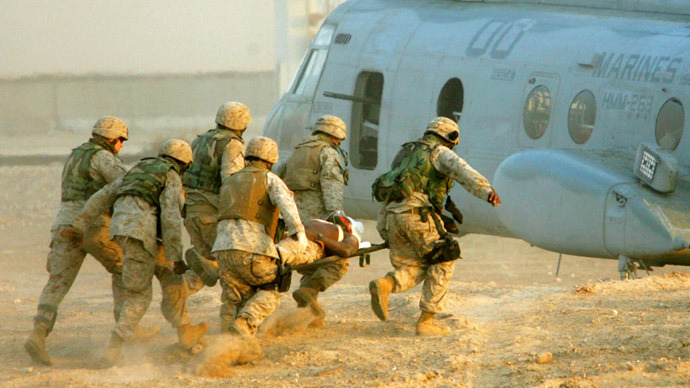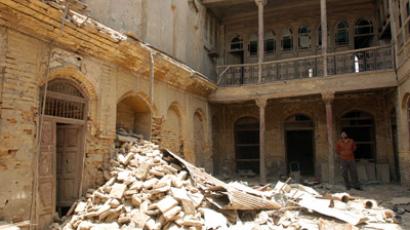Iraq, Afghan wars ‘most expensive’ in US history, drained defense budget for decades

The US wars in Afghanistan and Iraq will cost taxpayers up to $6 trillion, “the most expensive wars in US history,” a new report has revealed, adding that these campaigns will dominate future federal budgets “for decades to come.”
“The US has already spent close to $2 trillion in direct
outlays for expenses related to Operation Enduring Freedom (OEF),
Operation Iraqi Freedom (OIF) and Operation New Dawn (OND),”
said the 21-page Harvard report, titled ‘The Financial Legacy of
Iraq and Afghanistan: How Wartime Spending Decisions Will Constrain
Future National Security Budgets.’
The report also pointed out that this spending was “only a
fraction” of total war costs. The “greatest expenses,”
which the report said were medical care and disability
benefits, have yet to be paid to soldiers. In the future, an
estimated 2.5 million veterans will receive state benefits.
“The legacy of decisions taken during the Iraq and Afghanistan
wars will dominate future federal budgets for decades to come,”
the report said, adding that the highest cost of payouts to WWI
veterans only fell about 50 years after the end of the war.
Military benefits were increased in 2001, prior to the Iraq war, in
terms of quality, quantity, availability and eligibility, placing
an extra burden on defense spending. The action was taken to
encourage the expansion of the US Military prior to the
invasion.
The government is already committed to paying the accrued costs,
which currently stand at approximately $836.1 billion, the study
reported. Money borrowed to fund war costs has also made the
controversial military campaigns even more expensive.
The new estimates top the $4 trillion reported in the 2011 ‘Costs
of War’ study conducted by Brown University. A further, more recent
‘Costs of War’ report published earlier this month found that
accrued interest on the nearly $2.2 trillion in expenses would
amount to some $4 trillion dollars in the coming decades,
suggesting that the overall costs could amount to around $6
trillion.
The projected costs have risen steadily and dramatically since the
beginning of the conflicts – in 2003, $81.2 billion dollars was
budgeted for the cost of the wars in Afghanistan and Iraq.
The White House downplayed estimates in 2003, saying it was
impossible to accurately gauge what costs would be. Iraq alone was
anticipated to cost some $50 to $60 billion, Budget Director Mitch
Daniels told the New York Times in 2003.
In 2002, senior White House official Stephen Friedman was forced to
resign after publicly estimating that the Iraq War could end up
costing upwards of $200 billion. Later, in 2007, Defense Secretary
Robert Gates asked Congress to approve an additional $42.3 billion
for the Iraq and Afghanistan wars.
The human cost of the war is also difficult to ignore. Some 300,000
people have died directly from the warfare, including an
estimated 125,000 civilians in Iraq. The 'Costs of War' report
published earlier this month said that with the inclusion of slain
journalists, aid workers and insurgents, the minimum death toll had
reached an estimated 176,000 to 189,000.














